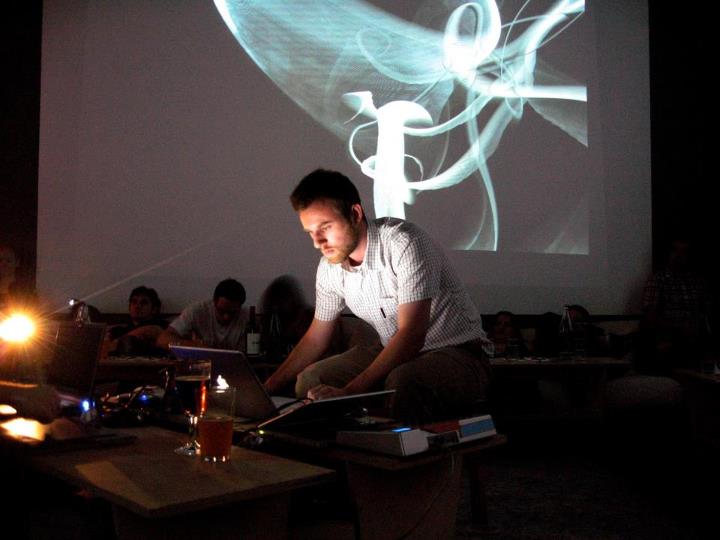
Musician and composer Ezekiel Honig is known for his recordings incorporating found sounds and textured beats. Sound Concepts is Honig’s online audio class, allowing students to start working on noises and sounds from the environment around them.
Joshua Meggitt spoke to Honig ahead of his first class.
Joshua Meggitt: How did the idea for Sound Concepts begin? Were there specific influences that led to this?
Ezekiel Honig: I’ve been toying with the idea of teaching for a while, looking into what’s available near me, but what I’m most interested in teaching is a less immediately utilitarian class, which is a difficult sell for an institution. I’m less interested in teaching production from a software perspective specifically, and wanted to work with people on ideas that can be stretched in different directions, are quite important to working, and hopefully lend themselves to a different understanding of music in general.
I decided to seek out students for private lessons, and then on the advice of a friend
worked on ways of expanding it to an online class, to open it up to more people. I come
from a teacher family, so I suppose it was a matter of time before it hit me.
How is it based on your own music? In what way do your own production methods mirror the subject of this course? What are you hoping students can get from the course?
It’s closely related, but because it’s a class environment it is more structured and
concrete. I’ve formalised some methods so we can explore them and people can make
use of them as they see fit once they are comfortable. I’m not teaching people to use
sound for a specific genre, or in a specific way. I’m not trying to teach people to work
like me.
My aim is for people to walk away with a solid enough grounding to feel comfortable and
confident to make it their own, putting these ideas into practice both as a new mode of
working and as a means of incorporating something into their current process.
Ultimately, I want people to think differently about music, how it’s organised, some latent possibilities in all types of sound, and most importantly, to listen to the world differently.
I realise it might be a lofty goal, but I believe that how you listen changes the entire
experience of your reality, and that’s the most basic concept explored here, even though
we will be exploring it in the context of making sound pieces.
Have you studied music professionally or are you all self taught? What have
been the most formative experiences upon your own musical development? Both
listening/theoretical and practical?
I don’ have any real “professional†education. I took violin lessons for a few months
when I was 5, but that was it. I think my most formative musical education was DJing
for a few years, listening to lots of music, and logically understanding some basic music
theory and putting it into practice from matching beats of two records, thinking more
about how music goes together, what works and what doesn’.
Beyond that, gradually developing a sense of what I want to hear and how it should be
built has been the focus. Recognising that using only sounds from the world around me,
outside the computer, and then using software as an end tool to edit and arrange, has
been the biggest shift, and I thank those who have pushed those ideas in the past for
that (Cage, Schaeffer, Herbert, etc).
Making the decision to embrace that basic concept was the major development for
me, and so much has come out of that, just realising that the sound around you can be
organised that way made music production more interesting and personal in a different
way for me.
How is the course structured?
The basic structure is a recorded lesson/lecture, followed by discussion in a private
online space, assignments, feedback on work, questions/answers. Each week has a
topic that is the focus, but each topic builds on the one before it, so it all comes together week-by-week.
The advantage of working this way is that time is flexible, both for people’ schedules
and the disparate time zones that it’s able to accommodate. It would be nice to have
this in a physical classroom, but it also would cut out the majority of the people who are
signing up.
How would you like this sound concepts course to develop in the future? What
other ideas do you have for future musical/ conceptual / educational projects?
I would like to keep offering the class, begin a new session as soon as one ends. I
imagine that the structure might change over time, seeing what is most effective for
people. If I can parlay it into a physical classroom experience that would be nice, though
working on both in tandem is probably ideal.
I’ve been working on a book around these ideas, and sound in general. I’m hoping to
finish that in a reasonable amount of time and flesh things out on the page in a different
way, hopefully reach more people, continue the conversation. Perhaps it can become a
textbook for the class.
Find out more about Sound Concepts on the website



